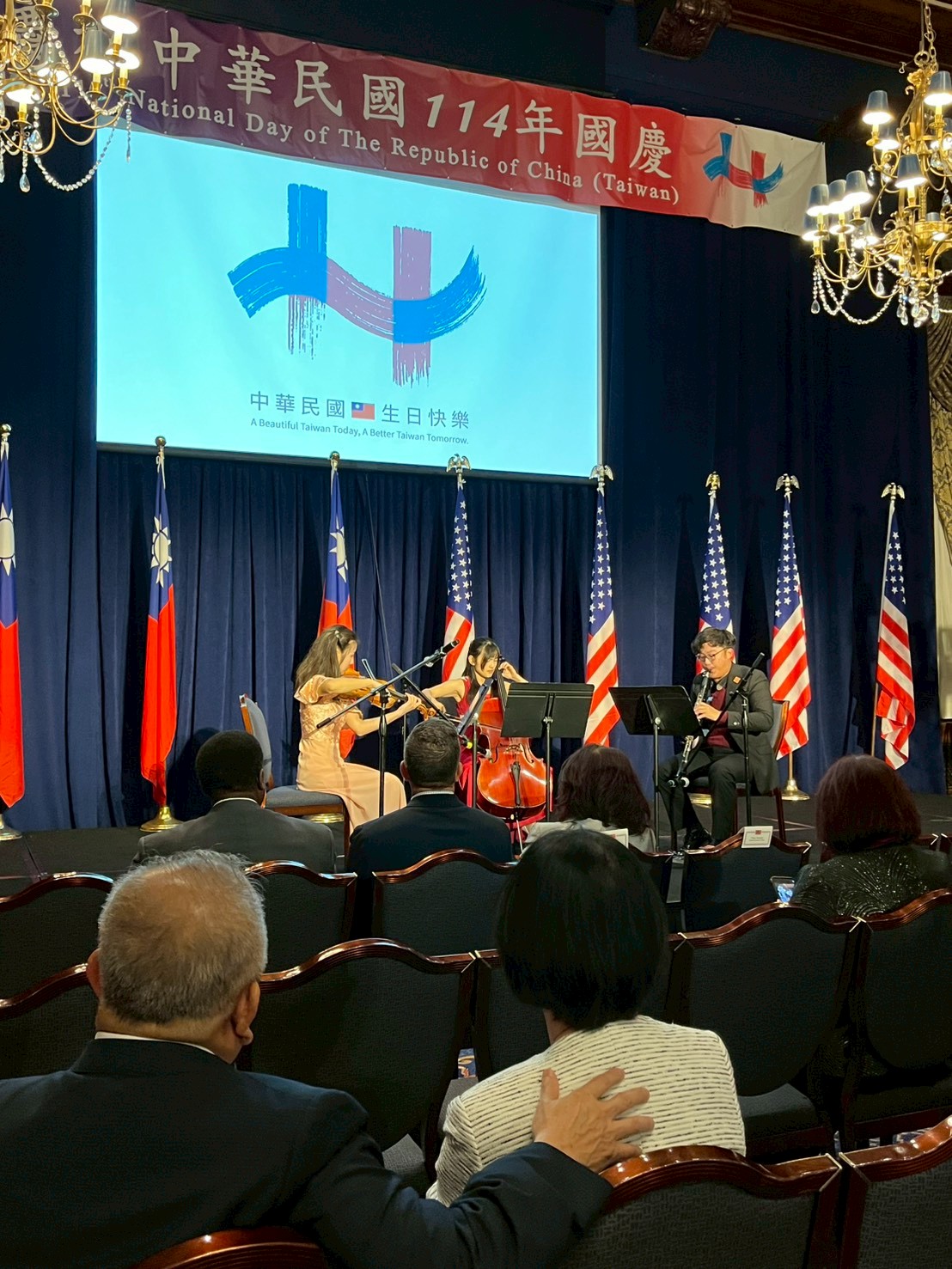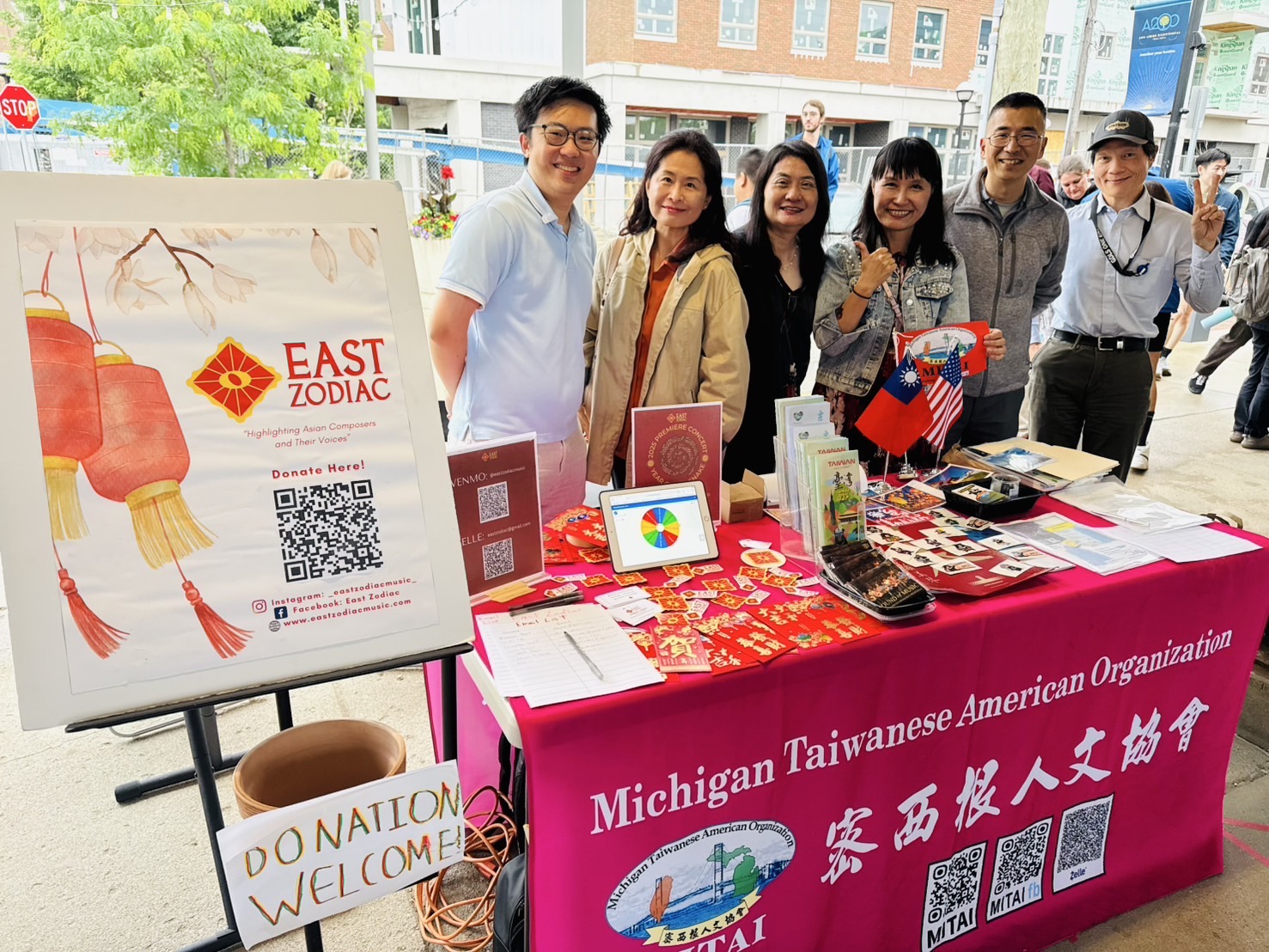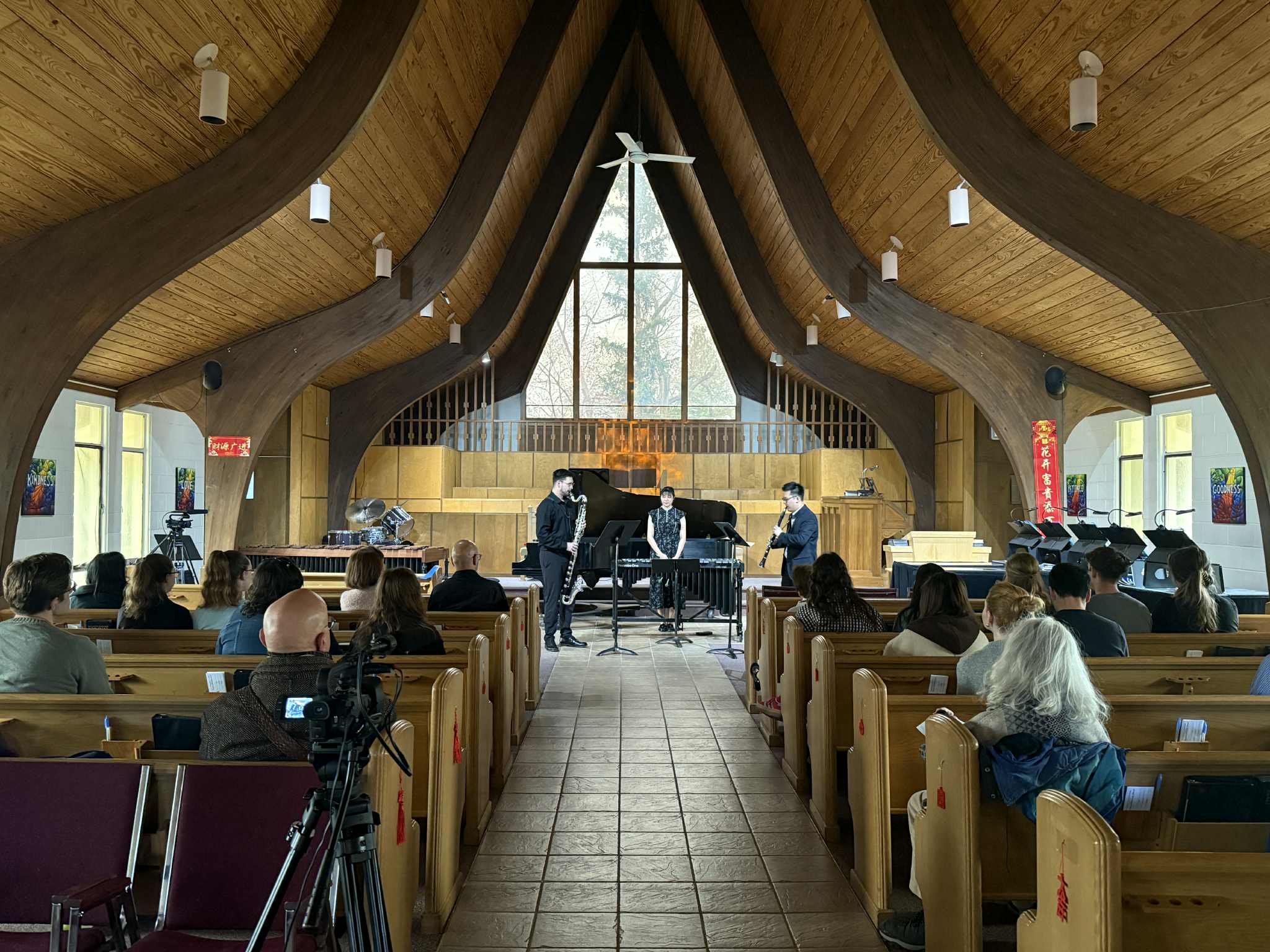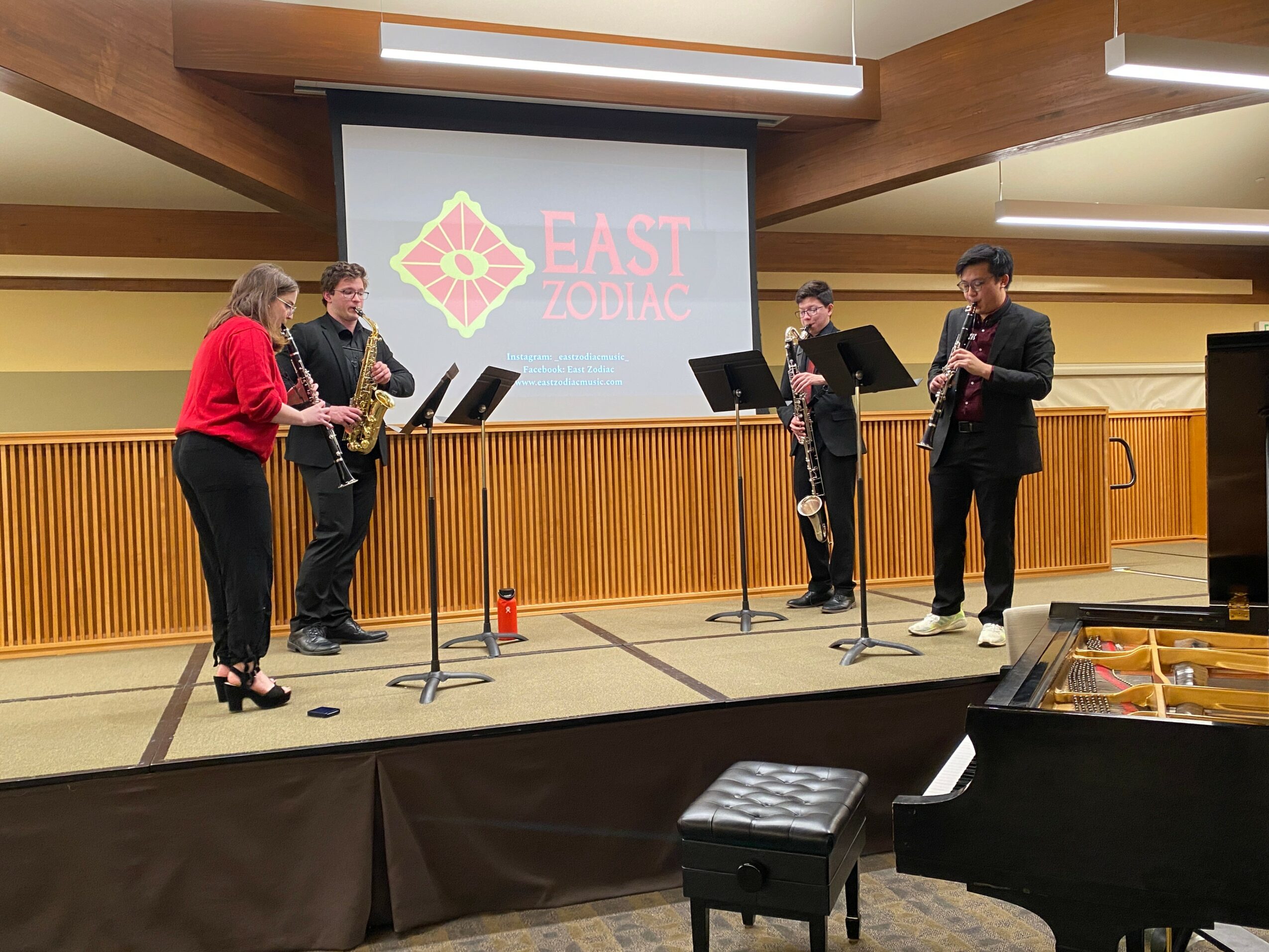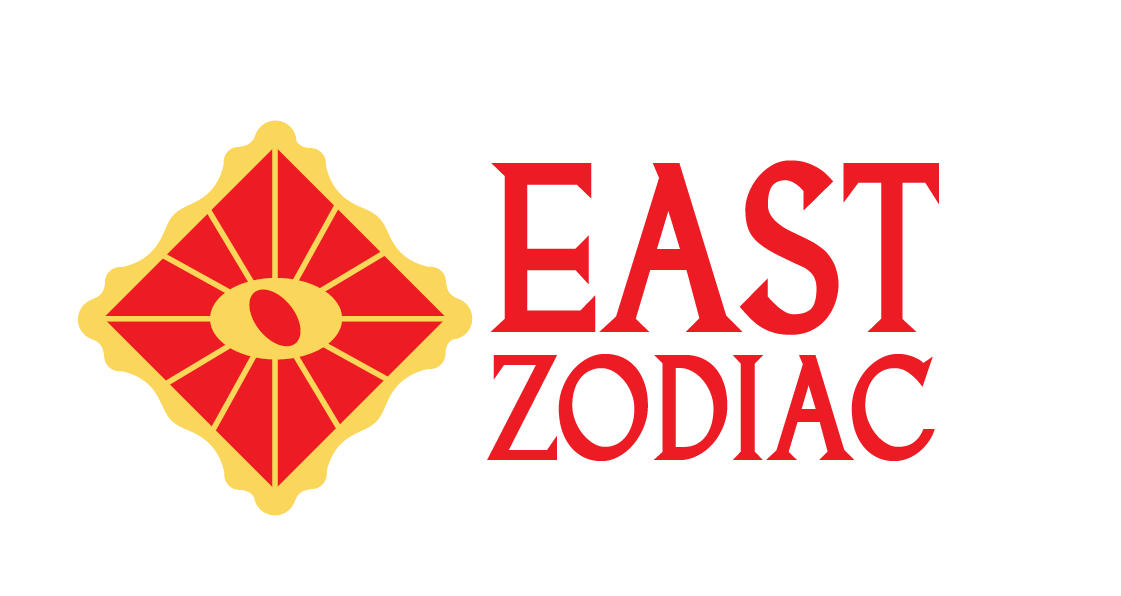

Today we’d like to introduce you to Samuel Lien Hsieh.
Hi Samuel Lien, can you start by introducing yourself? We’d love to learn more about how you got to where you are today?
East Zodiac began from a very personal place. Back in 2022, while I was preparing for my graduate auditions, I started searching for a clarinet piece that reflected my Asian heritage — something influenced by the sounds and stories I grew up with. But after some searching, I realized that there were very few works by Asian composers written for the clarinet. That realization stuck with me. If the music I wanted to play didn’t exist, maybe it was time to create it.
That moment became the seed for East Zodiac. I reached out to two close friends and collaborators, Sean Penzo and Vanna Tsiknias, and together we launched East Zodiac — an initiative that has since grown into a 501(c)(3) nonprofit organization. Our mission is to highlight Asian composers and their voices, to create meaningful representation of Asian descent within the U.S. classical music scene. At its core, East Zodiac exists to build a safe and visible space where AAPI composers, musicians, and audiences can thrive.
Each year, we commission a new piece from an Asian composer inspired by the Chinese zodiac. So far, we’ve premiered three original works: Year of the Rabbit by Christopher Nguyen, Year of the Dragon by Daixuan Ai, and Year of the Snake by Migiwa Miyajima. alongside the premiere piece, the concert features all music written by asian composers, supported through community fundraising, grants, and our growing network of consortium partners who help bring these works to life beyond their first performance.
Our connection to the University of Michigan and the EXCEL Lab has been a huge part of our story. East Zodiac was selected for the EXCELerator Fellowship in 2024, which gave us not only financial support but also invaluable mentorship and strategic guidance. The EXCEL team helped us think more sustainably — beyond individual concerts — and shaped how we build partnerships, engage communities, and amplify underrepresented voices. That experience completely shifted how I think about leadership and arts entrepreneurship.
In just a few years, East Zodiac has grown from an idea born out of curiosity into a platform that’s taken us to performances and lectures at Yale University, Indiana University, Furman University, and the South Carolina Governor’s School for the Arts, as well as outreach programs in libraries, markets, and student associations. Wherever we perform, our goal is the same: to bridge cultures through music and to create space for conversation, identity, and pride.
At a time when DEI efforts across the arts are being reevaluated or even rolled back, I see East Zodiac as a reminder of why this work matters. We’re not just commissioning music — we’re building community and representation through art. For me, East Zodiac is more than an organization; it’s a statement that Asian identity belongs at the center of the classical music conversation — and that our stories, traditions, and sounds deserve to be heard.
Would you say it’s been a smooth road, and if not what are some of the biggest challenges you’ve faced along the way?
It definitely hasn’t been a smooth road. When we first started East Zodiac, none of us had any experience running a nonprofit. We were learning everything from scratch — how to file for 501(c)(3) status, write grants, budget for commissions, and balance creative work with logistics. There were moments when it felt like we were juggling everything at once, but those challenges taught us how to lead with intention and adaptability.
Lately, one of the biggest obstacles has been the broader funding climate. With recent cuts to the arts at the federal level, organizations like ours — especially those centered around diversity, equity, and inclusion — are feeling the strain. These reductions don’t just affect numbers on a budget; they affect people. They determine whether composers get commissioned, whether students get inspired, and whether cultural representation continues to have a platform.
But I actually see this moment as a turning point. Now is no better time for us to lean on our communities and be there for one another. When institutional support shrinks, community support becomes the backbone that keeps the arts alive. We’ve been incredibly fortunate to have an engaged network of musicians, educators, and audiences who believe in our mission. Collaborations through the University of Michigan’s EXCEL Lab and our growing consortium model have shown us how powerful it is when people come together to sustain something they care about.
The challenges have been real, but they’ve also reminded us why we exist — to create a space where AAPI artists are not only represented, but supported by a community that values their voices. This period has reinforced that progress isn’t just about funding; it’s about people standing behind a shared purpose and lifting each other up.
Thanks – so what else should our readers know about your work and what you’re currently focused on?
As a clarinetist and co-founder of the organization, I specialize in connecting Asian musical traditions with the Western classical canon. Our work is about creating opportunities for Asian composers to be heard, while also giving performers the chance to engage deeply with new, culturally rich repertoire.
I think what I’m most proud of isn’t just the music itself, but the community we’ve built around it. Over the past few years, I’ve watched composers, performers, educators, and audiences come together in ways that feel really intentional — supporting one another and making space for voices that have historically been underrepresented. That network of collaboration is, to me, just as important as the pieces we commission.
What sets us apart is how integrated our approach is. Through our composer consortium and partnerships like the University of Michigan’s EXCEL Lab, we’re not just producing premieres — we’re creating a system that sustains these works, ensures fair support for artists, and allows the music to continue reaching audiences beyond the first performance. People often tell me that East Zodiac feels different because it’s about more than music; it’s about stories, culture, and connection.
Ultimately, everything we do through East Zodiac is driven by the belief that representation matters, and that artistic excellence and cultural identity can — and should — go hand in hand. The fact that we’re able to amplify underheard voices and bring people together around that mission is what keeps me motivated every day.
We all have a different way of looking at and defining success. How do you define success?
For East Zodiac, success isn’t just about numbers or recognition — it’s about impact and sustainability, and most importantly, the people we reach. One of the most rewarding parts of this work is hearing from audience members who say they’ve never encountered music written by an Asian composer before — and that our concerts have opened them up to something entirely new. Equally meaningful are the students who approach us after performances saying, “Thank you — I feel seen. I’ve never heard music that reflects my culture before.” Those moments remind me that representation matters deeply. It’s not just about creating music; it’s about creating space for identity, heritage, and pride.
Success also means building structures that last. Through initiatives like our composer consortium and partnerships with organizations like the University of Michigan’s EXCEL Lab, we’re designing a model that allows commissioned works to live beyond their premieres, generating ongoing cultural impact. It’s about creating a community — composers, performers, educators, and audiences — who actively support one another and amplify these voices.
Ultimately, success for East Zodiac is when Asian composers’ voices are not only heard but celebrated and integrated into the broader classical music landscape. Every time a composer gains visibility, a performer engages with new repertoire, or an audience member or student feels recognized and inspired, I know we’re achieving our mission. For me, that human impact — the way people connect with culture, identity, and stories through music — is the truest measure of our success.
Contact Info:
- Website: https://www.eastzodiacmusic.com/
- Instagram: https://www.instagram.com/_eastzodiacmusic_/
- Facebook: https://www.facebook.com/eastzodiacmusic
- LinkedIn: https://www.linkedin.com/in/east-zodiac-217524310/
- Youtube: https://www.youtube.com/@EastZodiac
- Other: https://linktr.ee/eastzodiac?utm_source=linktree_profile_share<sid=96342a7f-27ff-45bc-9edf-60344cdb3a06&fbclid=PAZXh0bgNhZW0CMTEAAacpKwO_LtcIWS7LY2jmG6f4F7vRhxGAB4jz5yQYETBGQizrV4JA_rmBdtDmAw_aem_ynvr0ECYl4bQMDIs-qoa_w
